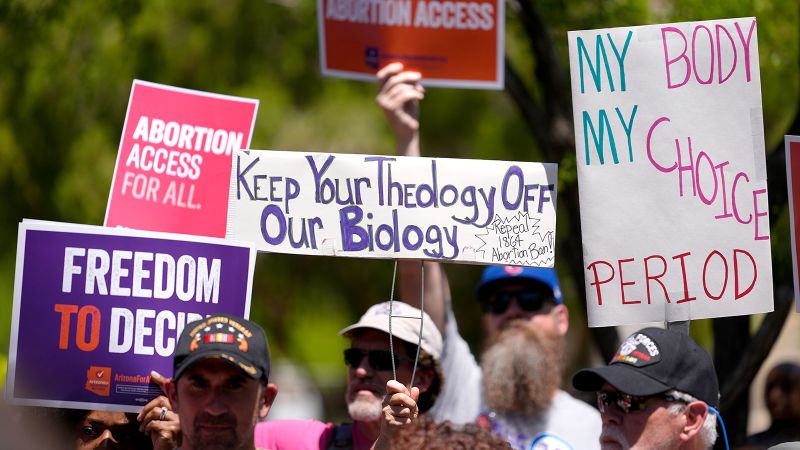Arizona Governor Katie Hobbs signed legislation repealing the state’s 160-year-old near-total abortion ban, paving the way for a 15-week restriction to be implemented instead. The bill passed the GOP-held Senate with two Republicans joining with all Democrats in the chamber to advance the measure. The debate over the bill grew contentious, with Republicans criticizing the defectors and Democrats, and expressing concern about a potential fall ballot initiative to enshrine abortion rights in the state constitution.
During a signing ceremony, Governor Hobbs and other Democratic leaders characterized the repeal as the first step in a larger battle over reproductive rights. They emphasized the importance of protecting women’s bodily autonomy, their ability to make healthcare decisions, and their control over their lives. The repeal marks a significant victory for abortion rights advocates who have long fought to overturn the 1864 law that banned abortion at all stages of pregnancy except to save the mother’s life and threatened providers with imprisonment.
Despite the repeal, the immediate future of abortion access in Arizona remains uncertain. The Arizona Supreme Court ruled on April 9 that the state must adhere to the century-old law, but enforcement was not slated until at least June 27, according to Arizona’s Democratic attorney general Kris Mayes. Additionally, the repeal measure will not take effect until 90 days after the Arizona Legislature adjourns later this year, potentially allowing the Civil War-era abortion ban to be enforced for some time.
The debate over abortion rights in Arizona reflects a broader national conversation about reproductive rights and bodily autonomy. Proponents of the repeal argue that women should have the right to make decisions about their bodies and healthcare without government interference. However, opponents of abortion rights continue to push for restrictions and limitations on access to reproductive healthcare services, underscoring the ongoing political and legal battles over this issue.
The repeal of Arizona’s near-total abortion ban is a significant milestone in the fight for reproductive rights in the state. It represents a step towards greater autonomy and decision-making power for women when it comes to their healthcare. However, the delayed implementation of the repeal and potential challenges to abortion access in the state suggest that the struggle over reproductive rights is far from over, requiring ongoing advocacy and activism to ensure that women can access safe and legal abortion care. As the debate continues, the role of state legislatures, courts, and advocacy groups will be crucial in shaping the future of reproductive healthcare in Arizona and beyond.


